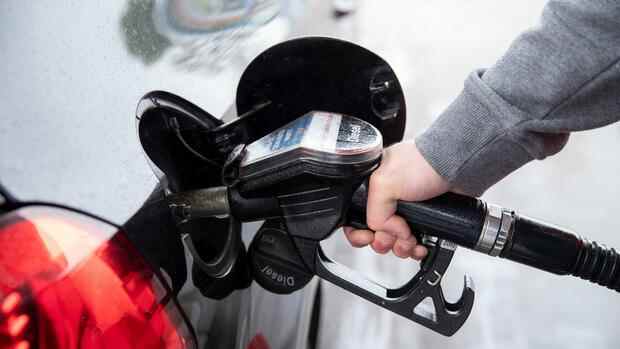The development of energy prices continues to drive inflation.
(Photo: dpa)
Frankfurt The inflation rate in Germany continued to rise in February. Consumer prices increased by 5.1 percent, as the Federal Statistical Office announced on Tuesday based on an initial estimate. Economists had expected the figure to remain at January’s level of 4.9 percent.
Inflation was already significantly higher than expected in January. Now there are new risks from the war in Ukraine. This has already pushed up the prices for oil, gas and other raw materials significantly. Russia is the top exporter of oil and gas to Europe, but also sells other commodities such as coal, wheat, fertilizers and various metals.
The new sanctions against Russia and possible counter-sanctions are therefore likely to fuel inflation even further. The price of European Brent oil rose to over $100 a barrel (around 159 liters) for the first time since 2014 after Russia attacked Ukraine.
In February, energy prices once again intensified their upward pressure. They are 22.5 percent higher. Goods rose in price by 7.9 percent and services by 2.8 percent.
Top jobs of the day
Find the best jobs now and
be notified by email.
According to calculations by the Berenberg Bank, an increase in oil prices to $120 a barrel and higher gas prices would lead to an increase in average inflation in the euro area by around one percentage point this year. She then calculates with a value of 4.5 instead of 3.5 percent. Growth would also be lower in this scenario.
That would complicate the monetary policy of the European Central Bank (ECB) even further. It is aiming for an inflation rate of two percent in the medium term for the euro area. In view of the high inflation, she had recently given signals for a faster tightening of monetary policy.
Until recently, many experts therefore assumed that at next week’s meeting it would decide to end its net bond purchases more quickly. However, this is now uncertain. ECB Director Fabio Panetta is already urging caution given the unforeseeable consequences of the Ukraine war. From his point of view, the central bank should apparently wait with a course correction. February inflation data for the euro zone will follow on Wednesday morning.
More: “A five before the decimal point is more likely” – How the Ukraine war increases the risk of inflation

